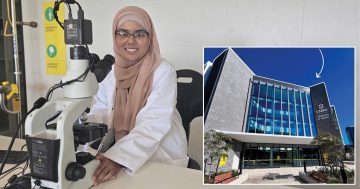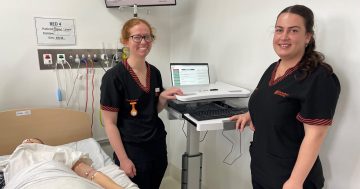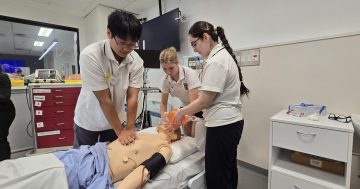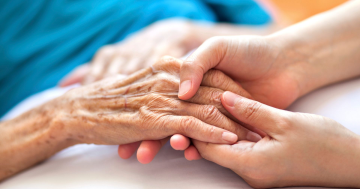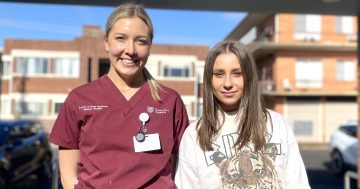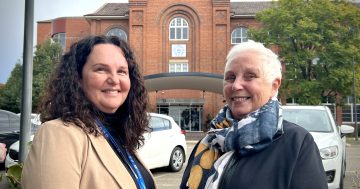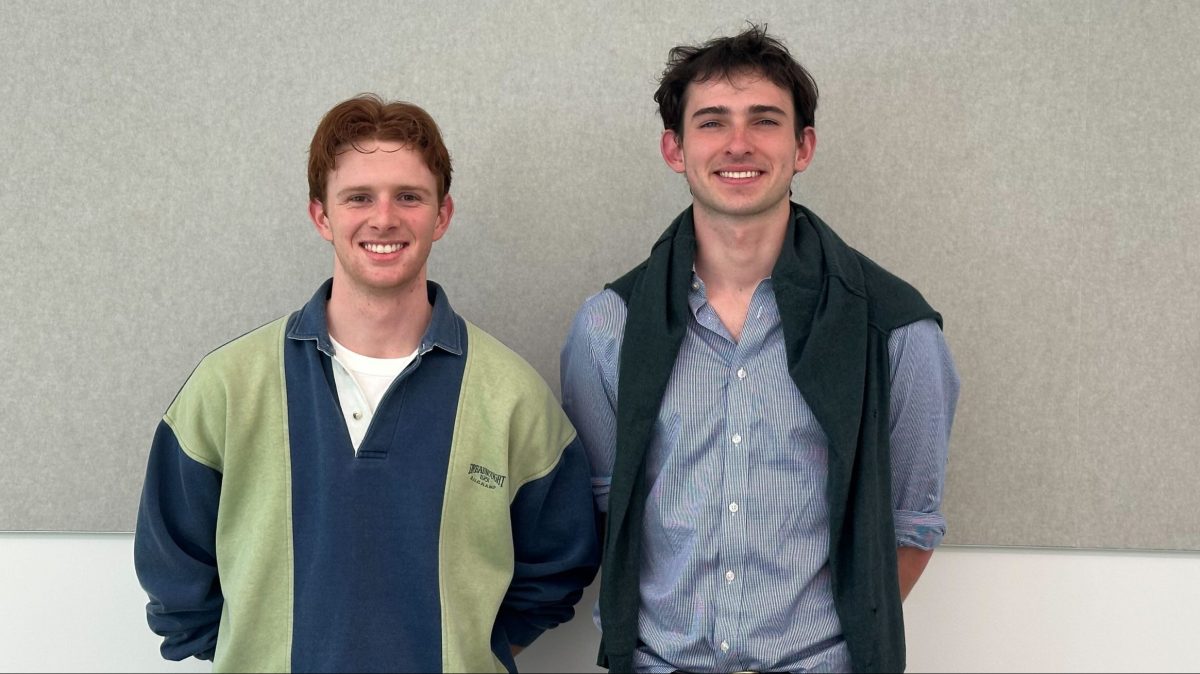
Jack Masson (Wagga) and Oscar Williams (Leeton) will be part of the first group of students to take part in the residential aged care placement program. Photo: Erin Hee.
Students from the UNSW Rural Clinical Campus in Wagga Wagga will have a unique opportunity to explore aged care through a recently launched clinical placement program.
UNSW Rural Clinical School senior lecturer and nurse practitioner Michael Maw said the goal was to give rural students the same opportunities as those from big cities and avoid the pitfalls of bringing city-raised students to rural towns, where they’d be unlikely to stay in the long term.
“Our sixth-year students have just sat their final exams in this last week, and all but two will be staying here at Wagga Hospital,” he said.
“Before the risk was that students would come out to a rural site, have a good experience and then go back to the city.”
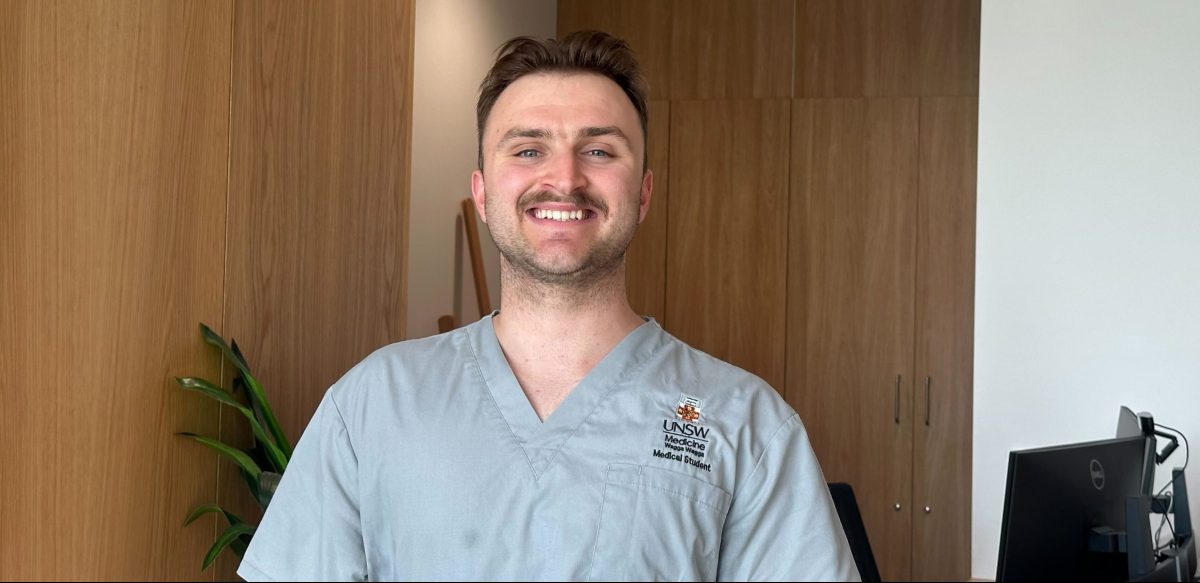
Alessandro Ganino has no plans in working at hospitals in Sydney or Melbourne. Photo: Erin Hee.
One such example is Alessandro Ganino, 23, a third-year student from the Hunter Valley who plans to stay and work in regional Australia when he’s older.
“I’ve got no attraction in going to Sydney or Melbourne hospitals, definitely want to stay rural and work when I’m older,” he said.
“[The new campus has] been a fantastic building, much more upgraded technology and whatnot, and learning spaces for us to collaborate in. It’s been really good so far.”‘
The placement program is a collaboration between The Forrest Centre Nursing Home and CareH, with the goal to give rural medical students hands-on experience in residential aged care in Wagga.
During the launch, representatives from The Forrest Centre and CareH spoke about what students could expect during their placement, how residents were cared for during hospital stays and the subsequent discharge process.

Third-year medical students and representatives from The Forrest Centre and CareH gathered at the UNSW Rural Clinical Campus for the placement program launch.
Third-year students Jack Masson from Wagga and Oscar Williams from Leeton found the speech insightful.
“All the points that were mentioned today were great,” Jack said.
“We haven’t been spoken to like this in any other placement before, so I think sort of knowing a bit ahead of time for what we’re going into and what we should be looking for is good,” Oscar said.
The rural clinical campus has given students in regional Australia the opportunity to finish their six-year medical degree without needing to relocate.
Associate professor Rashid Hashmi said the retention rate for the internships varied between 60 and over 90 per cent each year, but had risen significantly from three years ago.
“There are competing pressures around that [such as] partners and family,” he said.
“People who come from Queensland will probably, after six years, go back to their home.”
Mr Maw said there was strong evidence rural medical students were more likely to stay and work in rural areas, and he hoped the placement program would let them gain hands-on experience in residential aged care.
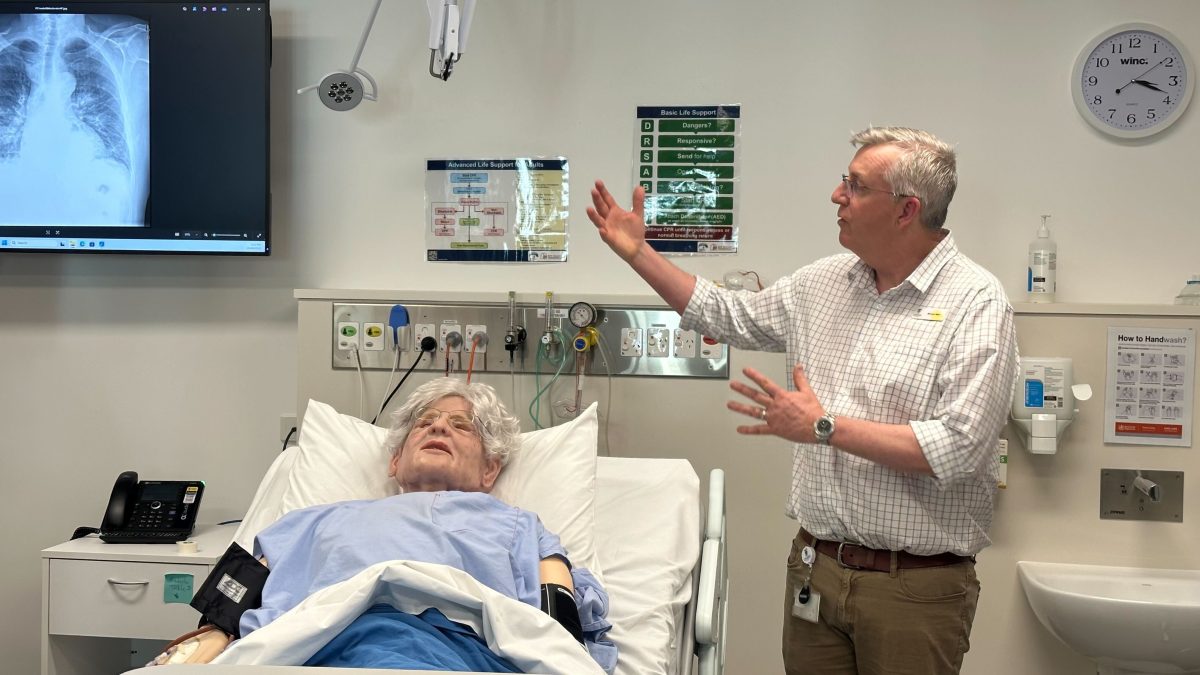
Michael Maw says the rural clinical campus gives rural students the option to complete their six-year medical degree close to home.
Students will be doing their placement in Wagga Base Hospital or other aged care facilities around the community.
“So our real goal is to get rural students to come and study medicine rurally,” he said.
“We’re really hopeful that they will gain a lot from it, that the elderly residents will get some nice, fresh, bright faces of our future doctors who will be looking after them.”







